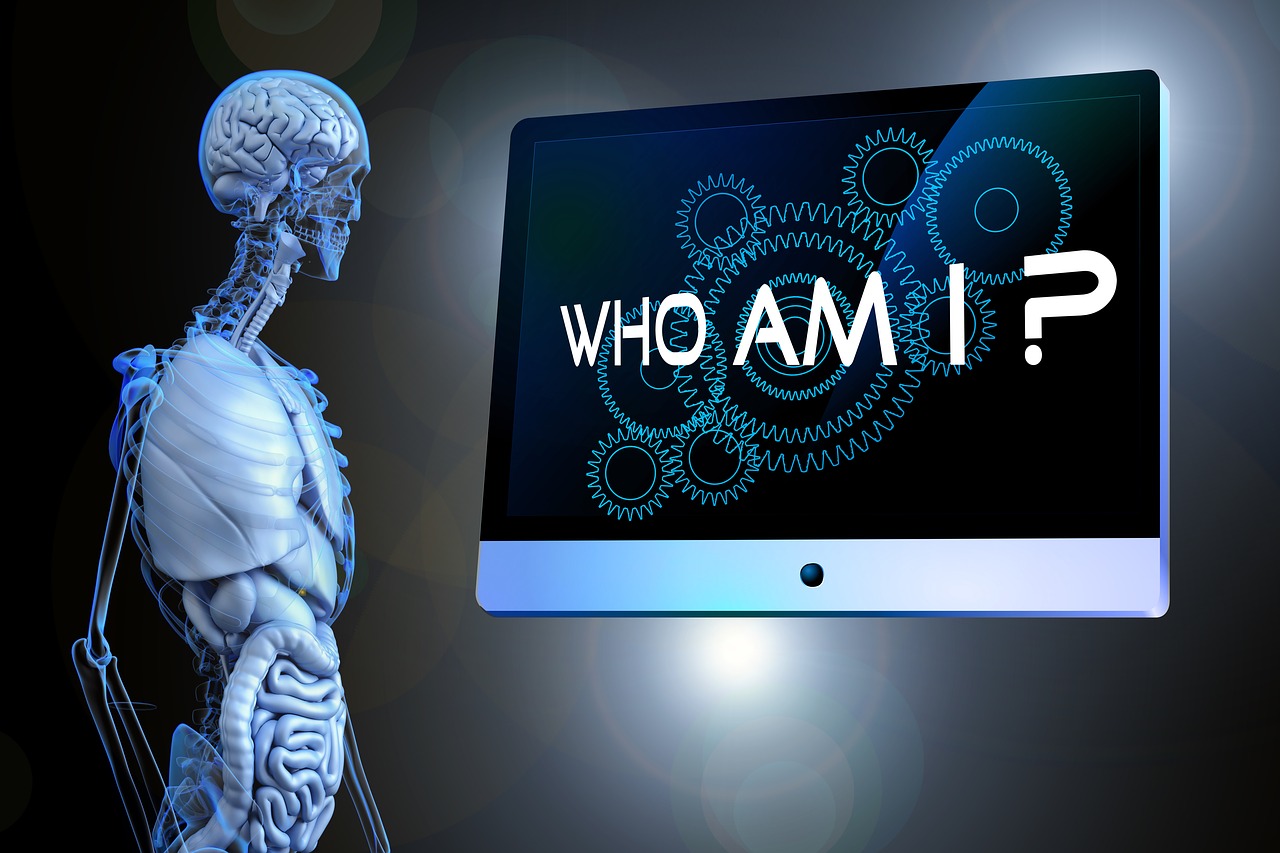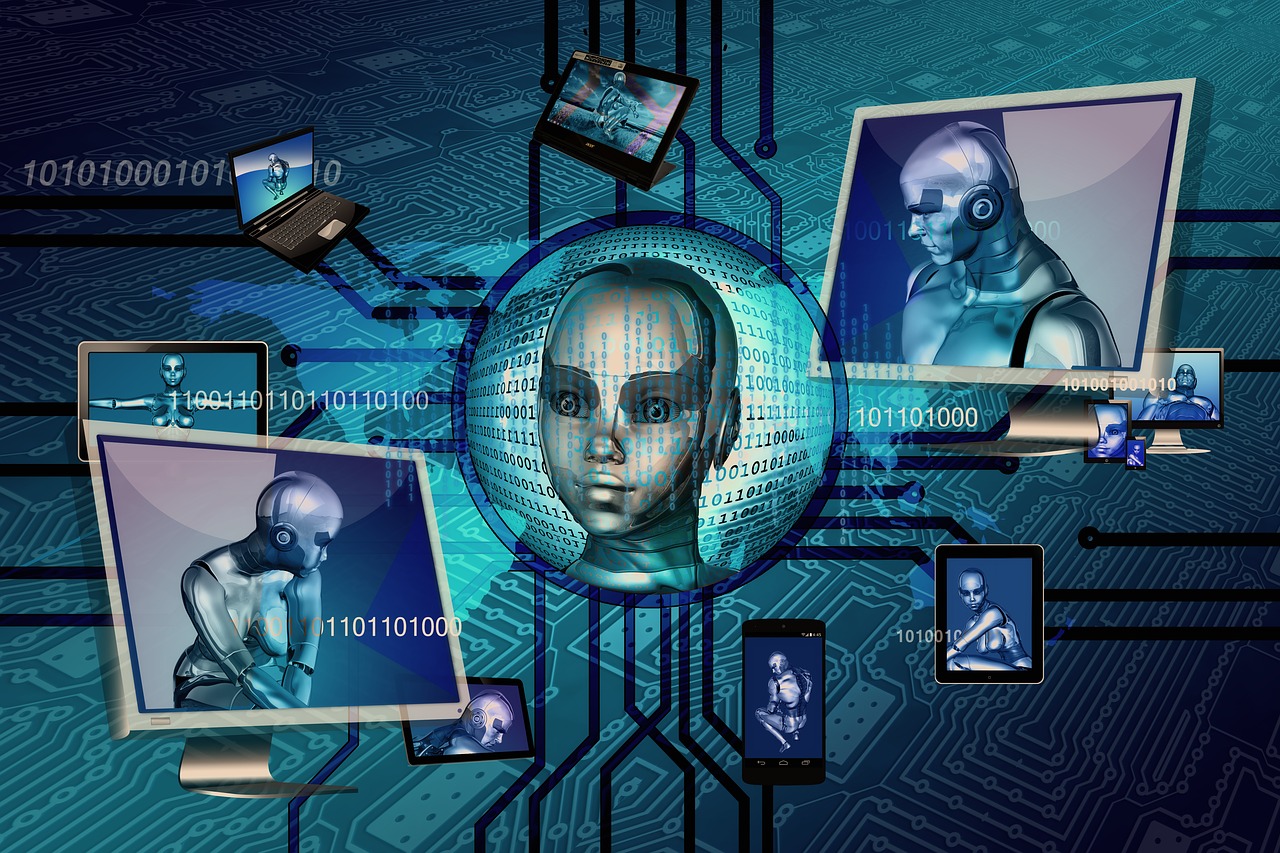
Transhumanism presents itself as a utopia. It promises advancement and progress beyond imagination. However, the question is: Whose utopia would this be? Will the advanced digital technology bring emancipation from routine, menial tasks? Or will it create a new underclass while helping the elite accumulate unprecedented power and wealth?
by Francois Zammit
Image by Timisu (Pixabay)
[dropcap]H[/dropcap]uman evolution and technology are inseparable. The key to the evolutionary success of Homo sapiens was the ability to adapt and redesign tools to suit its needs. The last 50 years have been the era of rapid emergence of new digital technologies. They are omnipresent: Our daily lives are being increasingly shaped by smartphone apps and social media platforms; ‘Big Data’ and ‘blockchain’ are practically on everyone’s lips.
What will the future of technology possibly bring?
Singularity? Transhumanism? What are they?
The transhumanist project looks forward to extending the relationship between humanity and technology further—to merge the two.
‘Singularity’ is the hypothetical phase in the technological evolution when machines will eclipse the limits of human intelligence. Such a leap, according to the hypothesis, will forever transform humanity. Transhumanism implies that, through singularity, humans will transcend the limitations of their physiological abilities to such a degree that they will practically become a new species.
[beautifulquote align=”left” cite=””]Singularity implies that problems might be solved within an instant through a network of intelligences working and processing information in unison.[/beautifulquote]
Ray Kurzweil in his book ‘The Singularity is Near’ suggests that, through the rise of ever more powerful Artificial Intelligence (AI) and the exponential growth of information technologies, humans will be able to enhance biological brains with nanotechnology, and that will lead to the creation of artificial neo-cortexes. All the individual minds will then become connected via cloud technology and, therefore, everyone who is part of the cloud will be able to access the information and processing power of all those plugged into to the cloud. In such a system, problems might be solved within an instant through a network of intelligences working and processing information in unison.
Kurzweil argues that the transhumanist project will succeed though the fusion of three components: genetics, nanotechnology and robotics. According to him, through an ‘upgrade’ from a biological body to the one endowed with superior digital or biomechanical technology, humanity can achieve longevity, if not immortality. Biotechnology will provide the means to redesign not only embryos but also mature adults. Body tissues could be rejuvenated through genetic modification, and biotechnology may be utilised to attack and remove cancerous tumour formations. Nanobots would cleanse the new upgraded body from pathogens and viruses. In this transhumanist future, nanotechnology will be there to replace and augment organs with neural implants that will cater for new software downloads and will increase the individual’s neural abilities.
Critiques of Innovative Technology: Ethical and Political

Although Ray Kurzweil paints a very bright picture of the singularity and the transhumanist future in general, not everyone shares his vision. Technology has given humanity countless new opportunities, yet there have always been fears of what this may lead to, especially if humanity merges itself with technology.
In their majority, critiques of the transhumanist project focus on the ethical aspects of biotechnology and bioengineering. Humanity altering nature’s design is, according to this line of thought, unnatural and therefore unethical.
Scepticism of technology is a recurrent theme in the history of thought: from the myth of Icarus, who is punished for his ambition to push beyond the limits of the human and attempting to conquer the sky with a pair of wax wings, to Plato’s ‘Phaedrus’, in which the philosopher argues how the invention of writing would cripple the ability to memorise knowledge.
Akin to the sceptics of the past, contemporary humanists criticising the possible impacts of innovative technology are concerned about the transformative effect of digital technology on the nature of humanity.
[beautifulquote align=”left” cite=””]If applied consciously, biotechnological advances could offer a cure for diseases and longevity, but what if it is abused by scientists employed by ruthless corporations or militaristic regimes?[/beautifulquote]
Shelley’s novel, ‘Frankenstein’, poses a question of what might happen if humanity, enabled by scientific discovery, is capable of creating new life. By practicing his newfound technology, Dr Frankenstein equalises to a deific creator—albeit, it isn’t a new Adam he brings to life, but a monster. If applied consciously, biotechnological advances could offer a cure for diseases and longevity, as Kurzweil proposes, but what if it is abused by scientists employed by ruthless corporations or militaristic regimes?
The reservations on transhumanism are not only limited to humanist and ethical considerations. The dawn of machine superintelligence might underpin changes of such drastic proportions that their effect could be irreversible. A direct consequence of singularity might not be about existential threats that intelligent machines may pose to human civilisation, but how this technology may further exacerbate economic inequality. Transhumanism might either be a tool of social progress or might pave the way to the darkest imaginable dystopia.
The Industrial Revolution of the nineteenth century catalysed tectonic socio-cultural shifts and defined the society and politics that came after it. Not everyone embraced the industrial revolution. Groups of workers, later referred to as Luddites, protested the newly built automatized cotton mills. They criticised these advances for the devastating impact they had on the craftsmen’s lifestyle and wellbeing as also characterised by Dickens’ novels which offer a glimpse at how the industrial revolution affected the lives of the masses.
The Israeli historian Yuval Noah Harari warns against the perils of singularity and transhumanism in the globalised world that we are living in. Just like the industrial revolution produced gross inequalities between social classes, Harari argues, this scenario might repeat itself, but on an even larger scale, especially when considering the widening economic divide between countries and social strata.
[beautifulquote align=”left” cite=””]Those with access to biotechnology might become far superior in terms of abilities and longevity, compared to those unable to afford the enhancements.[/beautifulquote]
Although the transhumanist and singularity utopia envisions a leap forward for the human species in total, it ignores the profound social inequalities existing both on the local and on the global level. Taking into account disparity in opportunities between the haves and the have nots, it is a challenge to picture how they would cease to exist after the advent of singularity.
Digital technology, Kurzweil suggests, will become a lot cheaper and more accessible; it will find its way to each and every one, just as it happened with computers and mobile phones. Yet, this argument does not delve into the future accessibility of biotechnology and bioengineering. Although smartphones are commonplace pretty much everywhere in the world, including less prosperous countries, the same is not true about healthcare. Thus, the social costs of bioengineering and microchip implants could be devastating—those with access to biotechnology might become far superior in terms of abilities and longevity, compared to those unable to afford the enhancements.
Transhumanism: Utopia for the Few or the Many?

The most profound impact of transhumanism could be its potential to reshape the economic relations between social strata.
All societies, according to Marx, are divided into two major classes—the ruling class that controls the means of production—resources necessary to produce goods (natural resources, factories, infrastructure, etc), and the lower class who produce the goods and services by selling their labour to the ruling class. Ultimately, the ruling classes accumulate ever more wealth because the workers spend their wages on the products they themselves manufactured, but which are owned by the ruling class. Although modern capitalist societies are riddled with exploitation, the lower classes have the power to sway the system in their favour by having a stake in the production process. Indeed, strikes or collectivist movements remain the workers’ key tool in the struggle for their rights.
[beautifulquote align=”left” cite=””]The breakthrough in digital technologies and the advancement of artificial intelligence will create a new underclass: ‘the useless class’.[/beautifulquote]
Transhumanism might bring this kind of relationship to an end. In his book ‘Homo Deus: A Brief History of Tomorrow’, Harari speculates that the breakthrough in digital technologies and the advancement of artificial intelligence will create a new underclass: ‘the useless class’. And this transformation would be distinct from the changes brought by the Industrial Revolution. Despite the Luddites’ fears of being replaced by machinery, industrialisation expanded employment opportunities and offered training for unskilled labour, but this scenario seems unlikely in the age of transhumanism.
The new technological revolution will instead make most jobs redundant. Whereas machinery like steam engines replaced manual and repetitive work, AI will outcompete humans in the intellectual sphere too, meaning that human workers will no longer have special skills to offer. They can become simply redundant. Hence, the new ‘useless class’ will play no economic role in society. Although we may argue that this does not make them ‘useless’, Harari justifies the terminology by pointing out how disenfranchised individuals will have no function within the new social order; their meaning of life may therefore be compromised.
[beautifulquote align=”left” cite=””]By enjoying the access to biotechnology, the ruling classes will continuously enhance their abilities, health and longevity, thus gaining an enormous advantage over the rest.[/beautifulquote]
Here is a broad sketch of what a transhumanist society might look like: the ruling class—the supreme owner of the new technology—will be able to control the manufacturing of goods and the provision of services without the input from the lower classes. By enjoying the access to biotechnology, the ruling classes will continuously enhance their abilities, health and longevity, thus gaining an enormous advantage over the rest. In such a society, the power will be concentrated in the hands of a small elite on the scale unprecedented in human history.
This may well sound far-fetched, yet, given the status quo with all its injustices, the devastating consequences of the rise of AI and bioenhancement seem more than plausible.
[beautifulquote align=”left” cite=””]Transhumanism might give us an opportunity to unleash our creative potentials and dedicate more time to caring about one another.[/beautifulquote]
Nevertheless, there is a slim chance that the transhumanist project will not end up in a hellish future. This may happen if social consciousness advances to such a degree that it eradicates any justification for inequality between individuals and social strata. In a world where labour is automated and outsourced to AI, a new lifestyle of leisure may become a reality. This is similar to the utopia professed by Marx who envisaged great emancipatory opportunities in machines taking over menial and dehumanising tasks done by human beings. In such a case, we could finally have time to unleash our creative potentials and dedicate more time to caring about one another. Transhumanists also propose universal basic income for everyone and that could lead to recognising equal intrinsic value and the needs of every individual.
Transhumanism presents itself as a utopia. It promises advancement and progress beyond imagination. However, the question is: Whose utopia would this be? As China Mieville once stated, we live in a utopia: it’s just not ours. Utopias for some might could mean a nightmare for others. Will the advanced digital technology deliver a utopia for the majority, facilitating emancipation from routine, menial tasks? Or will it create a new underclass while helping the elite accumulate unprecedented power and wealth? We simply do not know yet. But given the prevalent contemporary trends, the latter seems more plausible.
Leave a Reply